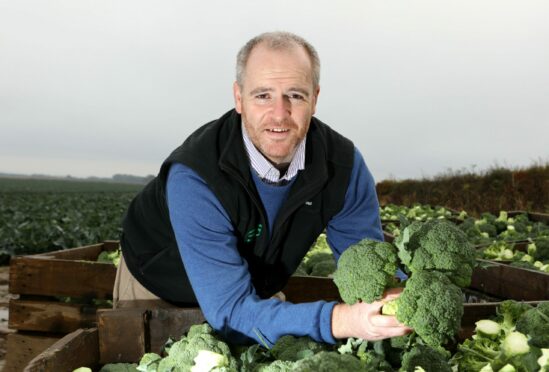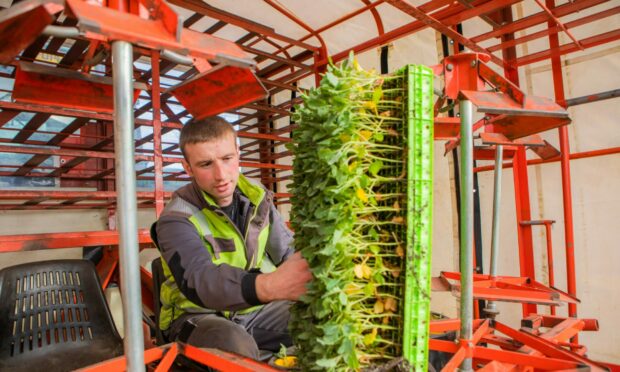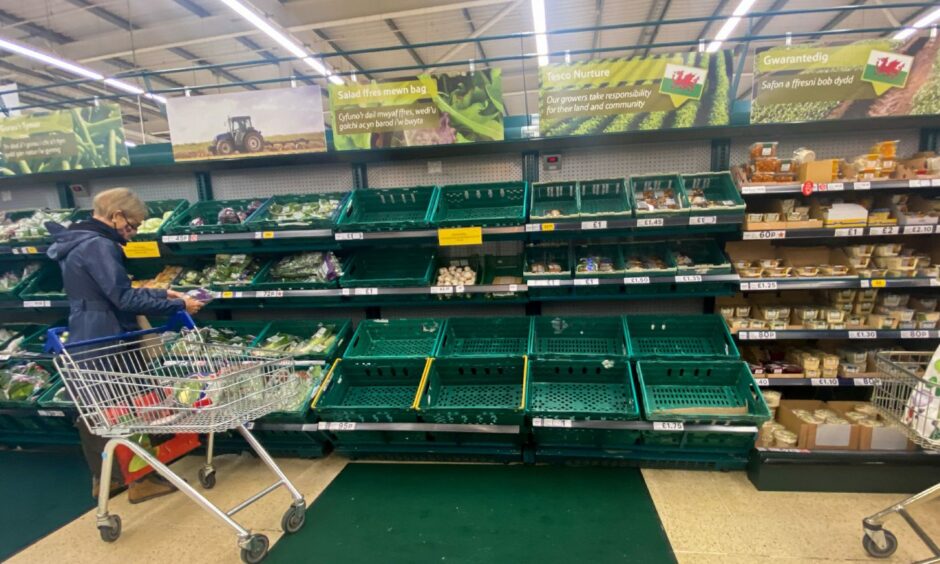A leading Scottish vegetable growers’ co-operative is cutting its production area by more than a quarter this year in response to rising costs of production.
Andrew Faichney – managing director at East of Scotland Growers – made the comments at NFU Scotland‘s virtual annual general meeting and conference.
He said the company, which produces approximately 40 million heads of broccoli and 20 million heads of cauliflower every year, was facing substantial increases in cost of production for the year ahead.
Speaking during a session on rising input costs, Mr Faichney said: “In a 12-month period we have seen an increase in cost of production which is more than the past 13 years combined.”
He said the cost of production for growing broccoli was up by 14%, or £1,350 per hectare, while the cost of production for growing cauliflower was up by 17%, or £1,800 per hectare.
Providing a breakdown of the different cost factors impacting growers, Mr Faichney said labour costs were up by 11%, while the cost of fertiliser had increased by 112% and the cost of fuel was up by 55%.
Other cost increases include a 93% increase in the cost of electricity, a 12% increase in the cost of haulage, and an 83% increase in cardboard costs.
“It’s very difficult to find these price increases in the market we operate in,” said Mr Faichney.
“We have had some progression over the last 15 years with sold yields up from the field – largely down to labour, plant breeding and crop husbandry – but we cannot go into the current year relying on [increased] yield to cover the cost of production increases.”
He said these increased costs have resulted in East of Scotland Growers cutting back production by approximately 1,700 acres – equating to 26% – for 2022 and three of the co-operative’s growers have chosen not to grow vegetables this year.
“Prices have increased going into the coming year and we have seen more of an increase in the last six months than in the last 16 years, but that is still not enough to offset these increases,” added Mr Faichney.
He said East of Scotland Growers was pushing retailers for further increases to the price it is paid for vegetables, however increased shelf prices and/or shortages of products on supermarket shelves is a real possibility for 2022.
“We face an almost impossible challenge in 2022; it’s an ugly conundrum to do enough to remain viable but cut back,” added Mr Faichney.
“If there are sustained [product] shortages in this period then everyone in the supply chain will have to take stock. Without an actual shortage it’s going to be very difficult to break the psyche we are currently in.”


